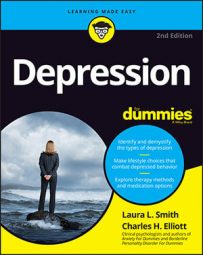-
Do get help. You can start with self-help resources like books and the Internet, but you need to see a professional if your mood doesn't lift soon. There is nothing wrong with asking for help.
-
Don't ignore feelings of hopelessness or suicidal thoughts. These symptoms are serious! Seek help immediately.
-
Don't think that there's nothing you can do. Depression is highly treatable.
-
Do keep trying. If your first attempt to treat depression doesn't work, try something new. A variety of ways exist to help you.
-
Don't blame yourself. Depression has many causes, and you certainly didn't ask for it.

